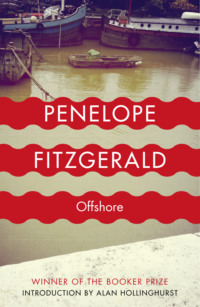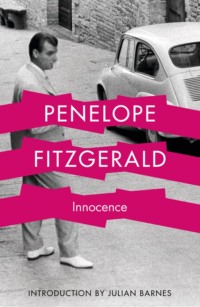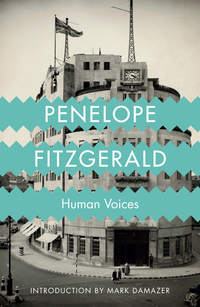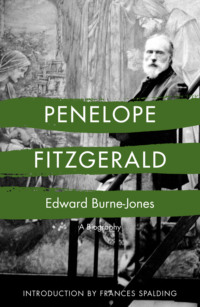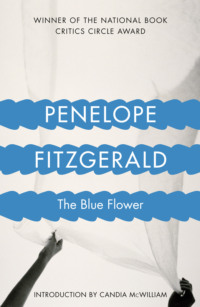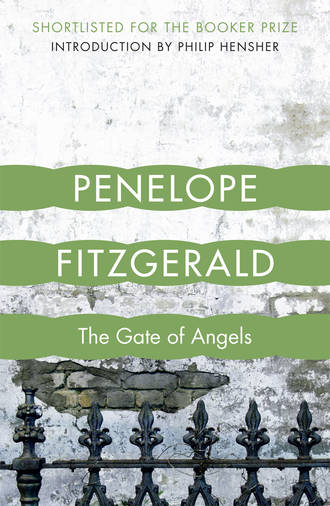
Полная версия
The Gate of Angels

The Gate of Angels
PENELOPE FITZGERALD

Contents
COVER
TITLE PAGE
PREFACE BY HERMIONE LEE, ADVISORY EDITOR
INTRODUCTION
Part One
1 FRED’S THREE NOTES
2 A FEW WORDS ABOUT ST ANGELICUS
3 HOW FRED GOT THIS JOB IN THE FIRST PLACE
4 DINNER AT ST ANGELICUS
5 AT THE RECTORY
6 THE DISOBLIGERS’ SOCIETY
7 WHO IS DAISY?
Part Two
8 DAISY
9 THE BLACKFRIARS HOSPITAL
10 THE MEN’S WARD
11 THE CASE OF JAMES ELDER
12 KELLY
13 DAISY LEAVES LONDON
Part Three
14 NO MYSTERY ABOUT DAISY’S MOVEMENTS
15 A WALK IN THE COUNTRY
16 A VISIT FROM THE FAIRLYS
Part Four
17 DR MATTHEWS’ GHOST STORY
18 AN UNUSUAL COURT CASE
19 KELLY LAID TO REST
20 FRED’S ADVICE TO HIS STUDENTS
21 AT DR SAGE’S HOSPITAL
22 THE GATE OF ANGELS
OTHER WORKS
COPYRIGHT
ABOUT THE PUBLISHER
Preface by Hermione Lee, Advisory Editor
When Penelope Fitzgerald unexpectedly won the Booker Prize with Offshore, in 1979, at the age of sixty-three, she said to her friends: ‘I knew I was an outsider.’ The people she wrote about in her novels and biographies were outsiders, too: misfits, romantic artists, hopeful failures, misunderstood lovers, orphans and oddities. She was drawn to unsettled characters who lived on the edges. She wrote about the vulnerable and the unprivileged, children, women trying to cope on their own, gentle, muddled, unsuccessful men. Her view of the world was that it divided into ‘exterminators’ and ‘exterminatees’. She would say: ‘I am drawn to people who seem to have been born defeated or even profoundly lost.’ She was a humorous writer with a tragic sense of life.
Outsiders in literature were close to her heart, too. She was fond of underrated, idiosyncratic writers with distinctive voices, like the novelist J. L. Carr, or Harold Monro of the Poetry Bookshop, or the remarkable and tragic poet Charlotte Mew. The publisher Virago’s enterprise of bringing neglected women writers back to life appealed to her, and under their imprint she championed the nineteenth-century novelist Margaret Oliphant. She enjoyed eccentrics like Stevie Smith. She liked writers, and people, who stood at an odd angle to the world. The child of an unusual, literary, middle-class English family, she inherited the Evangelical principles of her bishop grandfathers and the qualities of her Knox father and uncles: integrity, austerity, understatement, brilliance and a laconic, wry sense of humour.
She did not expect success, though she knew her own worth. Her writing career was not a usual one. She began publishing late in her life, around sixty, and in twenty years she published nine novels, three biographies and many essays and reviews. She changed publisher four times when she started publishing, before settling with Collins, and she never had an agent to look after her interests, though her publishers mostly became her friends and advocates. She was a dark horse, whose Booker Prize, with her third novel, was a surprise to everyone. But, by the end of her life, she had been short-listed for it several times, had won a number of other British prizes, was a well-known figure on the literary scene, and became famous, at eighty, with the publication of The Blue Flower and its winning, in the United States, the National Book Critics Circle Award.
Yet she always had a quiet reputation. She was a novelist with a passionate following of careful readers, not a big name. She wrote compact, subtle novels. They are funny, but they are also dark. They are eloquent and clear, but also elusive and indirect. They leave a great deal unsaid. Whether she was drawing on the experiences of her own life – working for the BBC in the Blitz, helping to make a go of a small-town Suffolk bookshop, living on a leaky barge on the Thames in the 1960s, teaching children at a stage-school – or, in her last four great novels, going back in time and sometimes out of England to historical periods which she evoked with astonishing authenticity – she created whole worlds with striking economy. Her books inhabit a small space, but seem, magically, to reach out beyond it.
After her death at eighty-three, in 2000, there might have been a danger of this extraordinary voice fading away into silence and neglect. But she has been kept from oblivion by her executors and her admirers. The posthumous publication of her stories, essays and letters is now being followed by a biography (Penelope Fitzgerald: A Life, by Hermione Lee, Chatto & Windus, 2013), and by these very welcome reissues of her work. The fine writers who have done introductions to these new editions show what a distinguished following she has. I hope that many new readers will now discover, and fall in love with, the work of one of the most spellbinding English novelists of the twentieth century.
Introduction
‘Those who have only known Christminster as undergraduates often think the lives of its residents are very uneventful,’ the novelist Robert Liddell wrote in his The Last Enchantments, set in an ancient university town. Penelope Fitzgerald’s The Gate of Angels is a scrupulous reconstruction of the life of another ancient university town, Cambridge, at a particular moment, that omits the principal purpose of the university in search of the eventful. The education of the young hardly impinges on the action; the life of the mind hardly seems to encompass the life of the undergraduate on which almost all other university novels depend – Fraill and Cork are the lightest bit-parts, as their names suggest. Fitzgerald’s focus is on the unseen and the overlooked, and events which can transform lives take place among the effectively invisible population – visiting day-trippers, local bourgeoisie, a junior don.
Fitzgerald’s novels are all very interested in the unnarrated event that the reader will know all about, but which the characters can’t envisage. A terrible accident may happen at the end of both Human Voices and At Freddie’s, but we can’t know for certain. We have to construct that unnarrated event, like the deaths of characters in The Blue Flower, consigned to a summary epilogue. The mind wonders, and constructs the agonising particulars on a scale that only requires, it appears, an economic allusion on the part of the novel itself.
The technique is most powerfully present in two of the last novels with historical themes. The Gate of Angels and The Beginning of Spring take place at the same time, 1912 and 1913. Both appear to know nothing about the historical catastrophes fast approaching. When Fred says that ‘these are wonderful years in Cambridge’ and looks with cross-national admiration at the retirement photograph of Ernst Mach, the Austrian physicist, a delicate irony is at work. We know that Fred’s students and Mach’s will soon be firing at each other, but the novel does not seem to know it. Like atoms, the future here is ‘unobservable’. In exactly the same way, there seems to be no knowledge or forewarning in The Beginning of Spring, set in an Englishman’s family in Moscow in 1913, that this comfortable way of life is about to vanish forever. The novel, with an ideal sense of unknowing, has thought its way back into a fragile existence, now normally obliterated by hindsight. The Beginning of Spring takes it for granted that revolutionary groups exist, and that if the reader will not forget about the Russian Revolution, the characters cannot know about it.
With her devotion to the unobservable and the barely glimpsed, it was to be expected that Fitzgerald had some interest in the ghost story. Almost her last publication was an introduction to a Penguin collection of M. R. James’s ghost stories; almost her first fictional publication was a chillingly authentic ghost story with the real M. R. James touch, ‘The Axe’. In the Penguin introduction, she draws attention to James’s real-life disdain for science and abstract thinking in general. It was starting to impinge on his own studies of the unseen. The life of Cambridge before the Great War was divided into the investigations of M. R. James and those of the Cavendish laboratory. ‘What truly distressed him, however, was the division of King’s into the Pious and the Godless, while in the Cavendish laboratory young physicists were at work constructing new models of a world without God. It was not scientific accuracy that Monty objected to but a sense that mankind was occupying the wrong territory.’
That division of humans at work at the invisible, between scientists and those in thrall to the numinous, to ghosts and angels, drives this novel too. It contains a brilliant pastiche of an M. R. James story. At the heart of Fitzgerald’s world is a sense that pre-occupations with the invisible come down to an investment in blood and flesh, too. ‘Thought is blood,’ Skippey says at the beginning; it is not the first time the point is made in a Fitzgerald narrative, nor will it be the last. Often, M. R. James’s ghost stories culminate in a physical sensation: his antiquaries have gone for long years without feeling another’s touch, and the feel of ‘a cold kind of face pressed against my own, and moving slowly over it’ (‘The Treasure of Abbot Thomas’) has a horrid intimacy. The Gate of Angels recreates that moment of intimacy disrupting the touchless life of the mind, not just in the ghost story (‘Someone was hauling against me, stroke by stroke …’) but in another register, in the love story.
At the tender heart of The Gate of Angels is Fitzgerald’s most entrancing heroine, Daisy; a person who does not belong in Cambridge and who transforms it. The painful clarity of Daisy’s hard-won path out of extreme poverty through nursing, only to lose it again, is one of those moments where a novelist’s fierce personal conviction appears to be making itself felt. Only with the appearance of Hermione Lee’s biography of Fitzgerald in 2013 did it become apparent with what good reason Fitzgerald feared extreme poverty, and what experience she had of losing everything. Daisy is brought together with Fred in the most deliberately arbitrary manner; their worlds do not belong together, and their collision disrupts all hierarchies and conventions. They are placed together, thanks to Daisy’s convenient wedding ring, naked in a double bed, and their relationship proceeds from there. A nice touch; Fred’s nakedness is less alarming to Daisy than her acknowledgement of it is to him.
What brings Daisy and Fred together is a clarity of vision, interrupted in Fred’s case by a storm of emotion. Both of them have been forced to see things lucidly by economic circumstances; Fred’s watch ‘was a silver watch, belonging to his father, given to him when he took up his appointment, and yet not quite given to him either, since when he went back on vacations his father tended to borrow it back’. In his many jobs at his college ‘… assistant organist, assistant librarian, deputy steward and assistant deputy treasurer … the words assistant, deputy, and so forth didn’t mean that there was necessarily anyone above him to do the work, only that he must do it without being paid’. Daisy has no illusions; south London has stripped her of those, and she rides the tram with a hat-pin and someone else’s wedding ring, against assault. When they meet in extraordinary circumstances, they are free to see the world as it really is; that neither of them really do is witness to the transformative power of the encounter. Fred’s confusion is immediately apparent, and Daisy seems to understand more at first: ‘Fred was appalled. “Don’t you know what you are to me?” he asked. Daisy considered. “I suppose I do know, Fred. To tell you the truth, a child of six would notice it.”’ But her delusions take longer to unwind, and shock her more thoroughly.
They are at home, with their capacity for precision and clarity, in the world of Fitzgerald’s novels. Fred remarks at one point that the word of a writer of fictions is not to be trusted; but he only partakes in, and does not absorb, Fitzgerald’s style. It is a matter not just of observing emotions exactly, but of placing their drama within an exactly notated physical context. In one virtuoso passage, Mrs Wrayburn considers her life:
Every day (in addition to cups, plates and dishes) demanded toast-racks, egg-cups, egg-cosies, hot water jugs, hot milk strainers, mustard-pots manufactured of blue glass inside, metal outside, silver fruit knives (as steel in contact with fruit-juice was known to be poisonous), napkins with differently coloured rings for each person at table, vegetable dishes with handles in the shape of artichokes, gravy boats, dishcovers, fish-forks with which it was difficult to eat fish (but fish-knives were only for vulgarians), muffin-dishes which had to be filled with boiling water to keep the muffins at their correct temperature, soup-plates into which the soup was poured from an earthenware container with a lid, cut-glass blancmange dishes, knife-rests for knives, fork-rests for forks, cheese dishes with lids the shape of a piece of cheese, compotiers, ramekins, pipkins, cruets, pots.
The exactness of detail doesn’t serve to suggest lavishness, but an array of things which their owners’ devotion to the unseen and the speculative seeks to escape. For us, however, it creates a world of credibility. The particularity of Fitzgerald’s observation, her research and her invention makes even the oddest and most unexpected actions of her plot believable. Only afterwards does the reader wonder – can cows be upturned by the wind like that? Has the novelist invented a St Angelicus College? Can a period detail as perfect as the substance containing Health Plasmon which ‘may be combined with a variety of substances to make nourishing dishes without the necessity of cooking them’ be anything but the product of research rather than imagination? (‘“It looks like cornflour to me,” said Daisy.’) The world is made up of fork-rests and Plasmon and invisible particles, exactly described. Are they real? Are they speculative? The Gate of Angels is a beautifully precise exercise of the novelist’s most illusionary skill, and a witty meditation about the practice of that art in the first place.
The obvious interpretation of Fitzgerald’s remarkable career, promoted by her, is that after four novels exploring aspects of her own life, she turned to the historical novel, and constructed remote and peculiar realities. There is something in that, but another reader might contemplate the ways in which she found possibilities to explore the peculiarities of love between the unalike in historical circumstances. Only in these novels did she find a way to pursue a convincing love affair in fiction, and all these late love stories are between impossible partners, whose link is somehow broken from the start. What events lay behind this development is impossible to say, and she could clearly only explore the subject once it was removed from her immediate circumstances. What remains, in these extraordinary, impassioned and exact novels is a world where thought and body, the solid and the unseen, the highest intellect and the basest behaviours and feeling unify in ways never envisaged before. Cambridge has always been very much one of the places where such unifications take place. It took the sharp eye and long contemplation of a Penelope Fitzgerald to give it such concise expression, however.
Philip Hensher
2013
1
Fred’s Three Notes
How could the wind be so strong, so far inland, that cyclists coming into the town in the late afternoon looked more like sailors in peril? This was on the way into Cambridge, up Mill Road past the cemetery and the workhouse. On the open ground to the left the willow-trees had been blown, driven and cracked until their branches gave way and lay about the drenched grass, jerking convulsively and trailing cataracts of twigs. The cows had gone mad, tossing up the silvery weeping leaves which were suddenly, quite contrary to all their experience, everywhere within reach. Their horns were festooned with willow boughs. Not being able to see properly, they tripped and fell. Two or three of them were wallowing on their backs, idiotically, exhibiting vast pale bellies intended by nature to be always hidden. They were still munching. A scene of disorder, tree-tops on the earth, legs in the air, in a university city devoted to logic and reason.
Fairly was making the best pace he could. He did not much like being overtaken by other bicyclists. No-one likes being overtaken by other bicyclists. The difficult conditions (some were blown over) turned the Mill Road into a display of pride.
The year was 1912 so that Fairly’s bicycle, a Royal Sunbeam, must have been thirteen years old. It had Palmer tyres, which left a pattern of long lines like wires, on a wet, glass-clear road. He felt better when he overtook a man who, from the back, might have been someone he knew slightly, and turned out in fact to be someone he knew slightly, a lecturer in the Physiology of the Senses, who called out:
‘They can’t get up again, you know, poor beasts, poor brute beasts!’
He was shouting. It was like sea-bathing. Everyone in turn must swerve to avoid a hat which had blown off and was darting about, crushed and deformed, at random. A whole group went by, then one of them detached himself and was riding alongside.
‘Skippey!’
He couldn’t hear what Skippey said, so dropped back and came up on the other side, the lee side.
‘You were saying?’
‘Thought is blood,’ Skippey replied.
The first man, the acquaintance, caught up once more. They were three abreast.
His words streamed with the wind.
‘I was in error. It’s sheep that can’t get up, sheep.’
‘The relief of it!’ Fairly called back. Now that the rain had stopped for a moment the drops blew off the trees as hard as handfuls of gravel.
At Christ’s Pieces Fairly turned right, meeting the wind head-on, and made landfall at his own college, St Angelicus.
Angels was, as it is, a very small college. Jokes about the difficulty of finding it, and the troubles the inmates were put to in fitting into it, had been made at any time for the past five hundred years. The twentieth century had opened by increasing these difficulties – for example, in the case of the Fellows’ bicycle shed, crouched like a peasant shack on the inner wall, close to the Founder’s Entrance. Peasants, however, would have built this, or any other shack, out of the way of the wind and rain, whereas the bicycle shed, on three sides, was open to both. And then, who might have arrived there before you? The college tutor of Angels was, and had been since the Second Boer War, a volunteer with the East Anglian Territorial Bicycle Corps, and, largely for reasons of vanity, rode at all times his specially adapted safety machine with its leather case for signal flags, rifle rest and spare water barrel. It occupied its own space and three-eighths of the next one, so that if you were the last man in, as Fairly appeared to be this evening, there was nothing for it but to manhandle your own bicycle onto a large iron hook fixed by the porter in the upper part of the wall.
Rain streamed down Fairly’s face, gathered at the tip of his nose, and fell. The shed was not so much like a shack, perhaps, as like the dodger on a ship’s bridge, of which one could only say that it was just about drier inside it than out. One step into the dusk, though, and he was through the Founder’s Arch and then into the inner court, with its one great walnut tree. Here, cut off completely, the wind could hardly be felt. Feeling as though he had been stunned, or dreaming, and was still dreaming, he began a short diagonal walk across the grass to get to his own rooms in the north-west corner. From the larger darkness under the trees a patch of darkness detached itself. It was the Master of the College, his gown scarcely adrift in the quiet airs of the Court of Angels.
The Master was blind. Fairly hesitated. After thirteen years the Master might have been expected to know the ins and outs of his little college, and he did know them. Probably he had paused under the walnut tree to sense what the crop was likely to be. It was an old sort, a Cornet du Périgord, which flowered late.
The Master called out, scarcely raising his voice, however. ‘This grass is reserved for the Fellows of this college. Should you be walking on this grass?’
‘Yes, I should, Master.’
‘But who is it?’
‘It’s Fred Fairly.’
‘Fairly, didn’t you have an accident? An accident quite recently?’
‘Yes, I did.’
‘On your bicycle, or off your bicycle?’
‘I suppose, both.’
‘I hope you weren’t unwise enough to go to hospital?’
‘I’m all right now, Master.’
‘Please take my left arm.’
This had to be done in a particular way, laying two fingers only on the forearm. It was the Master, however, who did the steering, slowly round and once again around the great tree trunk. He said quietly, ‘You’re very wet, Fairly.’
‘Yes, Master, I’m sorry about that.’
‘Now, tell me, have you made up your mind on the most important question of all?’
‘You’re talking about my religious beliefs?’
‘Good God, no!’
A rectangle of light opened in a wall and the Senior Tutor came out and took affectionate charge of the Master, who did not need it in the least.
‘Senior Tutor, just one or two points. In the first place, Fairly is very wet, for some reason. Where does he keep?’
‘I think, in the north-west corner.’
‘And then, Senior Tutor, there are kittens somewhere on our premises, very young ones. I heard them distinctly. As with all mammals, their first sounds are angry, the pleading note comes later.’
‘Possibly in the kitchens,’ the Senior Tutor said. ‘I shall speak to the Steward.’
As on Mount Athos, no female animals capable of reproduction were allowed on the college premises, though the starlings couldn’t altogether be regulated. There were no women bedmakers or cleaners of any age. These were very ancient regulations. Fairly continued on his diagonal. When he reached the bottom of his staircase he took off his Burberry, hung it on the ancient newel post and gave it one or two sharp blows to shake off the damp. Then he went up to the top floor, where he kept. On the way up he passed Beazley, the gyp. Beazley was short, like all the college servants, who were selected, probably, with this in mind. Fred had an arrangement with this man, which they had arrived at five years earlier when he had been appointed as a Junior Fellow, that Beazley wasn’t to ask whether his fire needed making up, because he was perfectly well able to make it up for himself, that he never wanted to order anything up from the kitchens, and that he didn’t want to be told that his messages, brought up from the porter’s lodge, were urgent.
‘These are urgent, Mr Fairly,’ said Beazley, catching up with him and handing him three envelopes, two of them clean and one of them not quite.
There was no gas laid on in the college and Fred turned on the Aladdin lamp, which threw a circle of inner radiance, as calm as it was bright. The fire was banked up like a furnace, dividing the room into areas of dismaying heat and cold. Up here the wind could be heard once again, battering at the panes for admission, while the roof-slates braced themselves against a fall. The college had never been thoroughly heated or dried out since its foundation, but Fred, who had been brought up in a rectory, one of the draughtiest places on earth, saw no reason to complain. He hung up his boots, his socks, his sock-suspenders, his cap, like offerings to the fire-God, on the solid brass fender. They steamed, and his long-jointed feet also steamed. Being too late for dinner in Hall, he took a knife and a cottage loaf out of a cupboard and began to make himself toast. He knew how fortunate he was to have got a Junior Fellowship at Angels.


